Covid: 'While I was in hospital I lost my daughter-in-law'
- Published
Covid patients describe what it's like to be cared for in Llanelli's field hospital
"I feel so sorry because I'm 20 years older and I'm still here".
Betty Tovey, 94, was being treated at a field hospital for Covid-19 when her daughter-in-law died with the virus.
Now she is ready to go home after six weeks, Betty is looking forward to returning to Penygroes, but it is an occasion marked with sadness.
She and other patients have spoken to BBC 5Live, which was given extensive access inside the temporary hospital, housed in a Llanelli bowling centre.
"I kept praying, please God let me go home to them, but unfortunately she was taken," Betty continued.
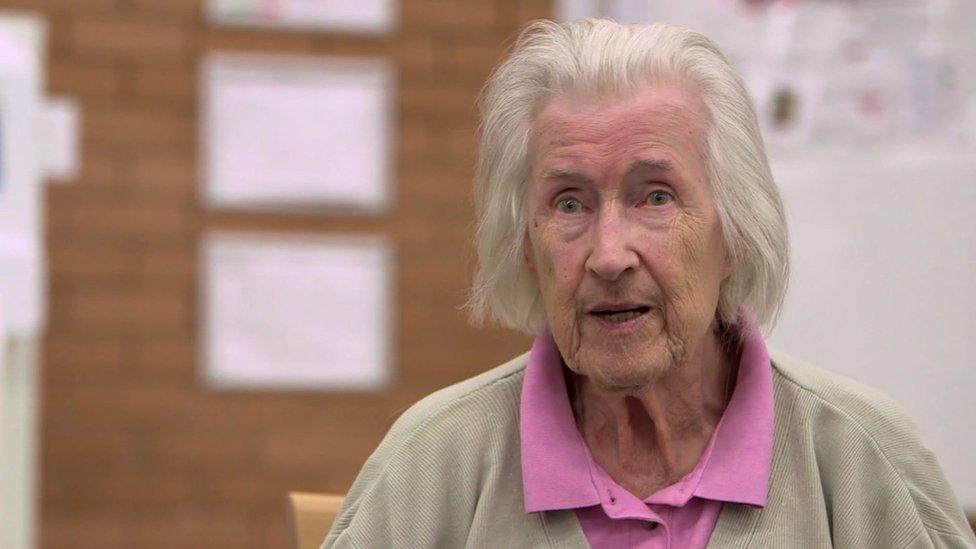
Betty Tovey, 94, says she needs to get home to her son who has lost his wife to the virus
She shared her story along with a series of other patients at the Carmarthenshire facility, in the week the number of deaths with coronavirus in Wales passed 5,000.
On the last six weeks, she said: "I don't remember a lot, there's lots of things I'd like to remember.
"I just wanted to go to sleep, but thankfully the Lord doesn't want me yet, I've got to go home and help my son, he's lost his wife."
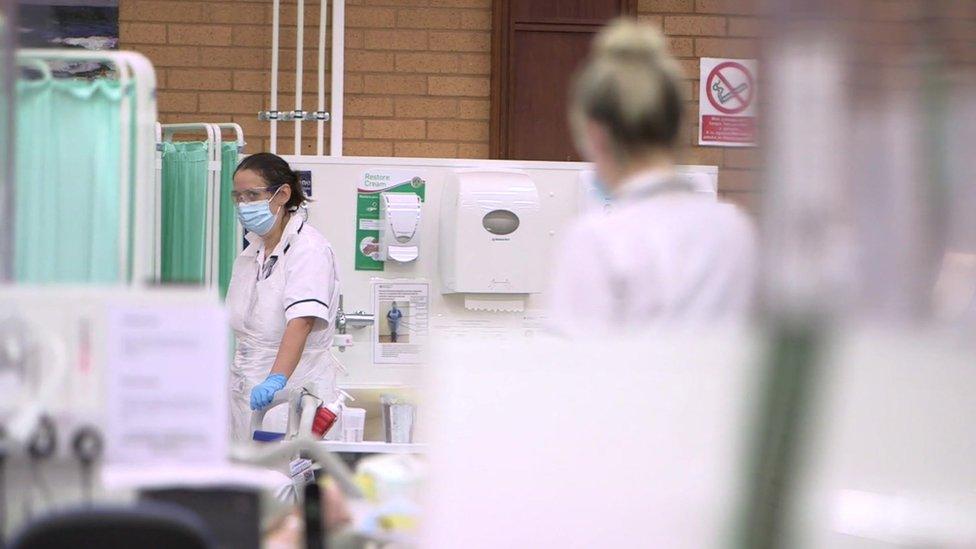
Patients in the hospital are treated to try and get them ready to go home
When the coronavirus pandemic struck nearly a year ago, facilities all over the country from sports stadia to theatres were rapidly converted into field hospitals, in a bid to relieved the pressure on hospital wards across Wales.
About 12 weeks ago, Hywel Dda University Health Board opened Ysbyty Enfys Selwyn Samuel in Llanelli and Ysbyty Enfys Carreg Las in Pembrokeshire, as a "step-down" facilities to help ease pressure on hospital beds.
At the Selwyn Samuel centre the bowling floor has been transformed into a "recovery" hospital ward with 42 patients being treated, mostly in the final stages of recovering from Covid-19.
Staff working here are helping to get patients - many of them elderly - back up on their feet, eating and drinking, and doing laps of the bowling floor, ready for the day they can go home.
'If I could help out, why not?'
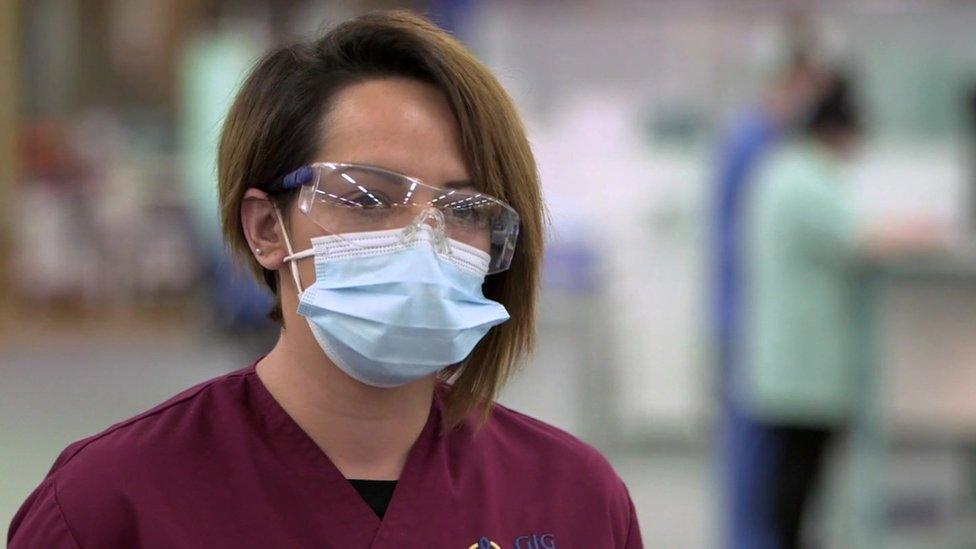
Ceri-Ann Jones says she enjoys talking to the patients and treats them like they are a "part of the family"
Ceri-Ann Jones was getting ready for a shift in a pub when the first nationwide lockdown was announced, on 23 March.
Now, after hearing the pressure the NHS has been under, she is helping care for Betty and other patients after starting work as a domestic assistant on the ward.
"I thought I was fit and healthy, to a degree, and when Covid started kicking off... if you could get your hands dirty and help out, why not?".
Ceri-Ann said that working on the ward had opened her eyes and she now wanted to train to become a nurse, to keep caring for people in the future.
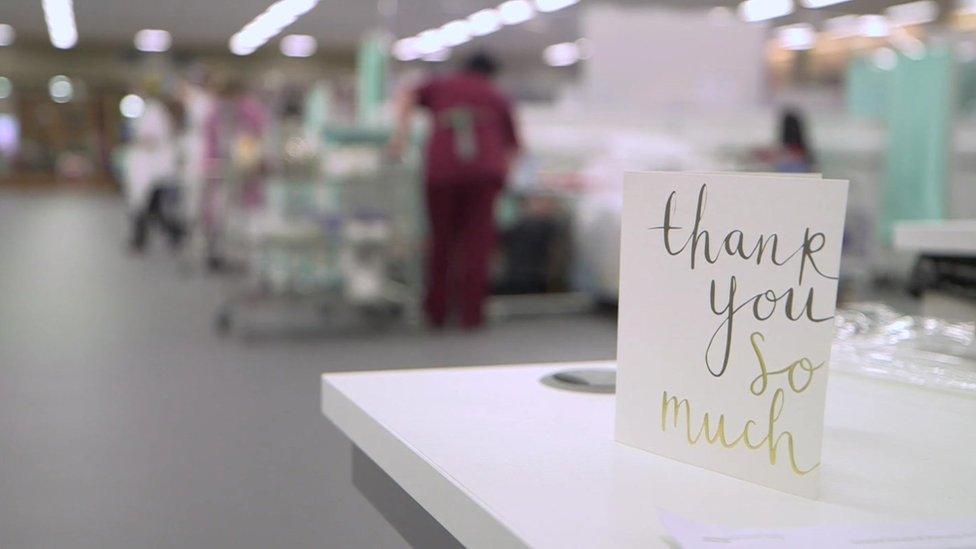
Staff said it was hard to see people breaking rules when they saw the impact of Covid on people's lives
She said she would like to bring people who did not believe Covid-19 existed on to the ward to see the lasting impact on patients' and staffs' lives.
"I look at it and think, if my parents or my grandparents were in this situation, how would I want them to be treated, "she said.
"It's knowing you've made a difference... why wouldn't you want to put a smile on someone's face."
'I couldn't be looked after better'
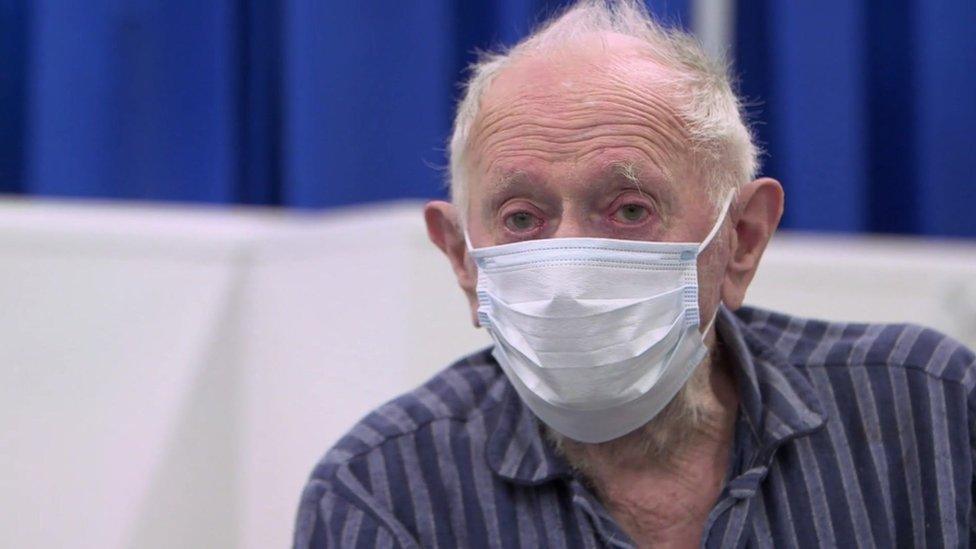
Charles Hughes said his son told him he had been ill in hospital, but he did not remember a thing
Charles Hughes spent about three weeks in hospital, but said he had been told about it by his son and does not remember "a day" of his time there.
But, the 88-year-old said he felt like he was getting better in the hospital.
"I'm well looked after, it's a palace... with the staff, with the food, everything, I couldn't be better well looked after," he said.
'Rewarding but challenging'
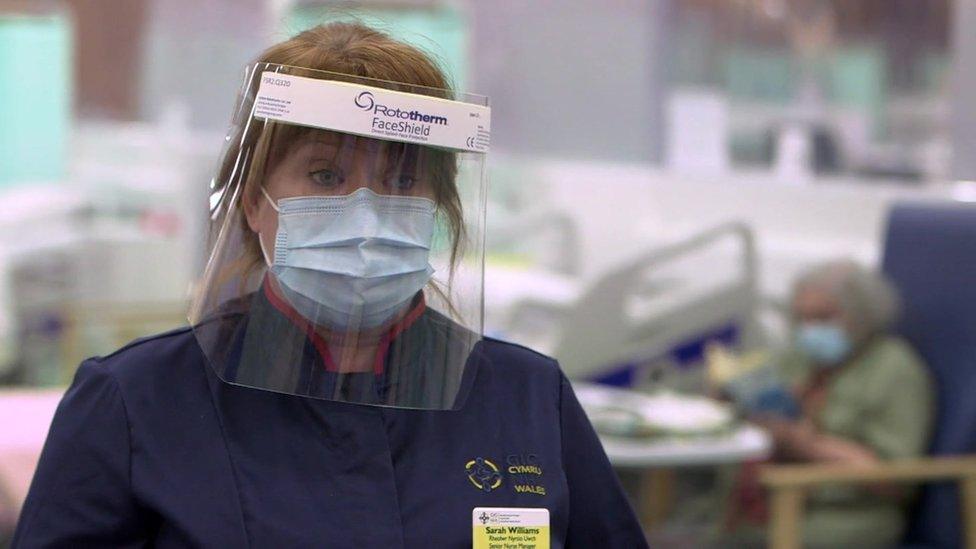
Senior Nurse Manager Sarah Williams said working at the field hospital could be tough but there were so many positives
Sarah Williams, a nurse of 32-years, never imagined working in a ward inside a bowling centre, but working with the patients - more than 100 of whom have been treated in 12 weeks - was very rewarding.
While it had been positive helping people get ready to go home, the work had been "challenging at times", especially with some of her family also contacting the virus.
"There are some really sad stories but there are a lot of positives as well," she said.
"The focus is getting them up and about, eating and drinking, giving them that extra care that they need before they go home to the care setting.
"It's a very positive experience for the patients to get that extra bit of care before they go home."
'Easing pressure on hospitals'
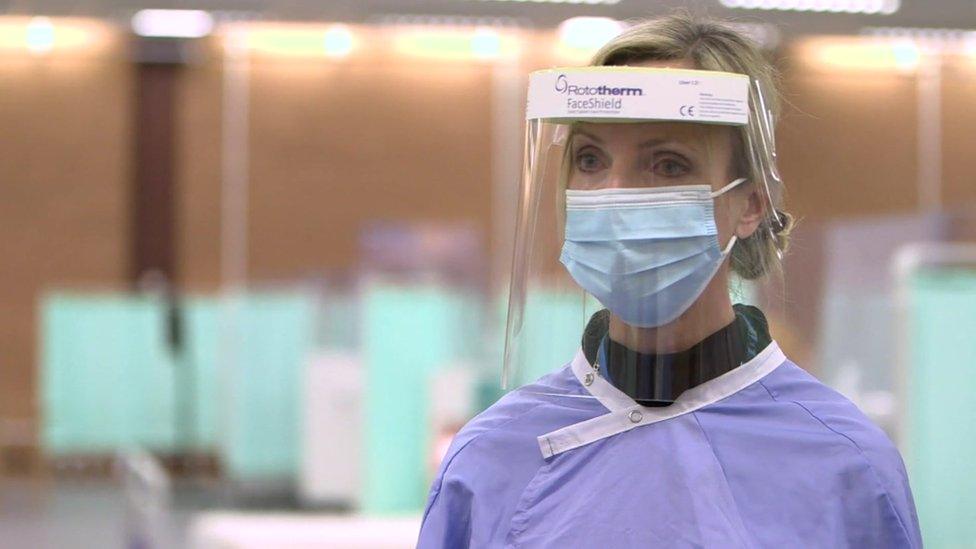
Dr Meinir Jones said she hoped the facility would be able to close sometime this year
Dr Meinir Jones, field hospitals clinical lead, said facilities like this field hospital, used to provide an extra level of care before a patient is discharged, were what was needed to "maintain flow" in hospitals.
The model is different from England's Nightingale Hospital approach, which were temporary hospitals used to provide critical care for patients.
She said that while the Llanelli facility could not be used for intensive care, because of workforce issues and technical medical equipment, it had helped to ease pressure.
"It's not just how long a patient spends in intensive care, it's about what happens afterwards... they spend a lot longer on wards afterwards," she said.
"I think we have in Wales been able to successfully adopt that step-down model."
Related topics
- Published15 December 2020
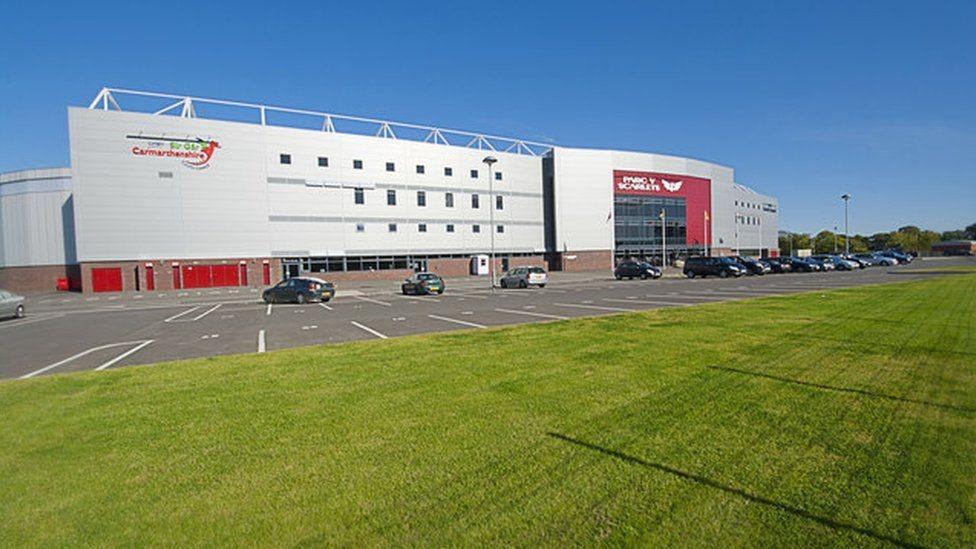
- Published23 December 2020